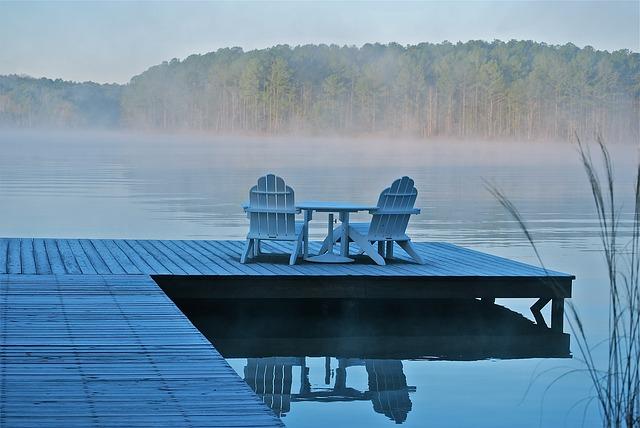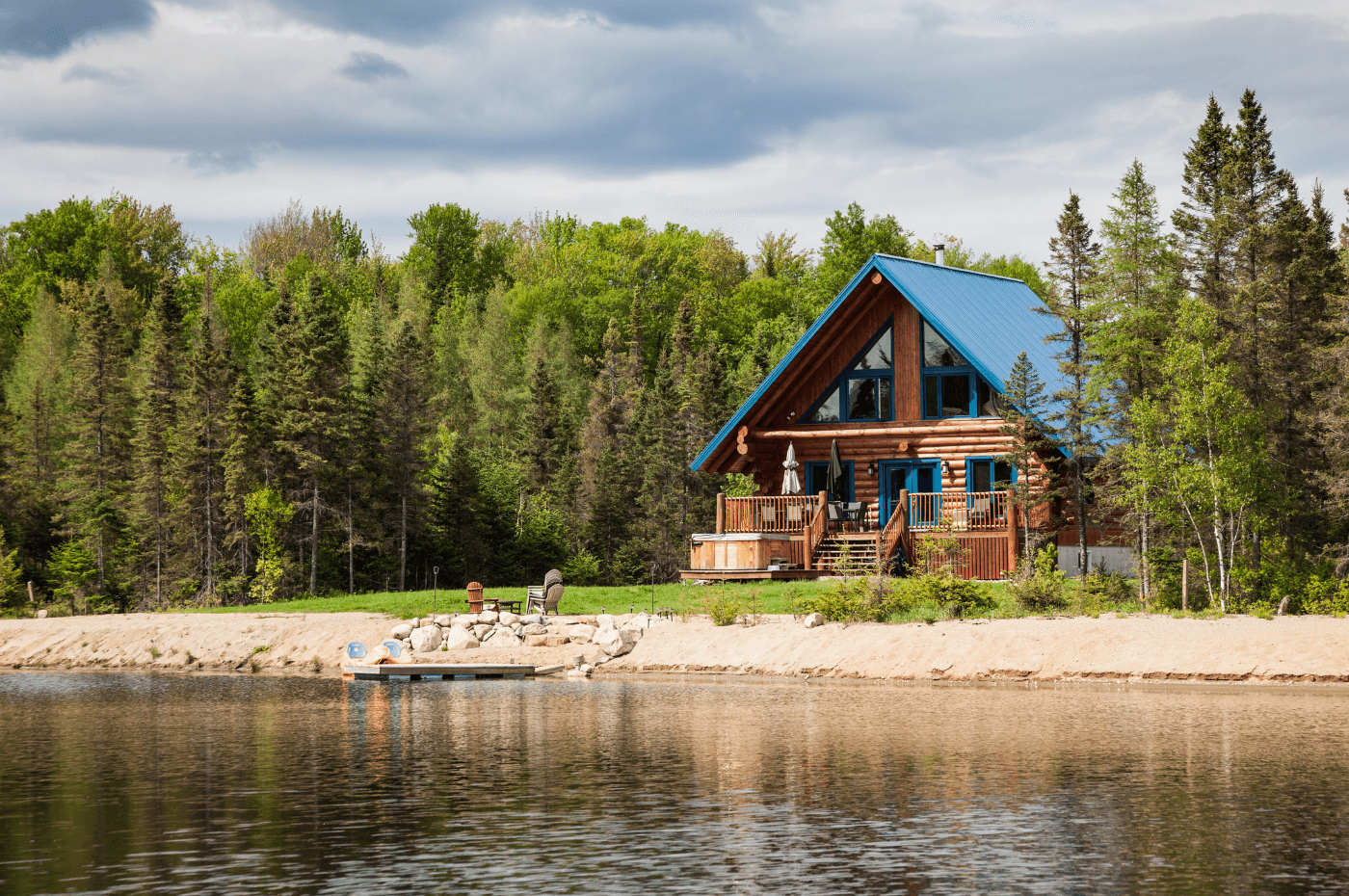Who hasn’t dreamed of relaxing on the weekend in their own vacation home? For many, this idea is a cherished goal and buying a cottage is a common aspiration for many Quebecers; many households are indeed pursuing this dream.
However, like any real estate purchase, buying a cottage should not be taken lightly. There are several factors to consider to make the right decision and turn your dream into a reality.
Is it better to buy or rent a cottage?
The decision to rent or buy a cottage depends mainly on your financial situation and how often you plan to use the property.
While renting a cottage can be challenging due to limited availability and the need to book weeks or even months in advance, buying a second home can eliminate these issues. You’ll be able to enjoy it as often and for as long as you wish.
Cottages are typically bought as second homes for weekends, spring breaks, and summer vacations. This means it’s an investment that you won’t use daily, but it will come with additional costs. You’ll need to ensure that these expenses fit within your budget.
Where to buy a cottage in Quebec?
Before diving into your cottage purchase, it’s important to consider the areas and locations that interest you. Some regions in Quebec are particularly popular for buying a second home. These include:
-
Charlevoix
-
Laurentians
-
Eastern Townships (Estrie)
-
Saguenay-Lac-Saint-Jean
-
Chaudière-Appalaches
To help you choose the right location, think about what you enjoy doing:
-
Do you want to engage in water activities? A lakeside home could be a great choice.
-
Are you a fan of winter sports? A cottage in the mountains might be more suitable.
-
Do you want to be completely isolated in nature? A more remote area could be perfect.
-
Do you plan to visit regularly? In that case, it’s best to choose a location within a reasonable distance from your primary home.
Defining your search criteria
In addition to the location of your cottage, it's important to define your purchase criteria. This will help guide your search and give you a clearer idea of the feasibility of your project.
-
Size: Consider the number of people in your household and your space needs. How many bedrooms and bathrooms do you require? Also, think about the size of the land you’re interested in.
-
Architectural style: Do you prefer a rustic log cabin or a modern residence with large windows? What features are essential to you?
-
Usage: Do you want to buy a cottage for personal use, or do you plan to rent it out when you’re not there?
Additionally, think about how you want to acquire the cottage: would you prefer to be the sole owner, or would co-ownership be an option?
Once your criteria are defined, you can begin your search. To make sure you don’t miss any opportunities and find the perfect property, consider working with a real estate broker.
What are the financial implications?
Purchasing a new property, even a seasonal residence, comes with significant costs and various associated fees. Here’s an overview of the financial aspects you should consider.
What is the required down payment?
Just like purchasing a primary residence, the down payment required for buying a cottage will depend on its sale.
-
For a property under $500,000: you'll need to provide at least 5% of the purchase price to qualify for a government-backed mortgage. If you want to avoid paying mortgage insurance, you’ll need to offer a 20% down payment.
-
If the purchase price exceeds $500,000: you'll need to provide 5% of the first $500,000, plus 10% of the remaining amount.
Fees associated with the purchase
In addition to the down payment and mortgage insurance (if applicable), purchasing a cottage involves several fees that should be factored into your budget. These include:
-
Notary fees.
-
Pre-purchase inspection fees (including septic system and well inspections).
-
Fees related to the property’s market value appraisal.
-
The welcome tax owed to the municipality.
-
Home insurance.
Is the purchase of a cottage taxable?
The answer to this question depends on how you plan to use the property.
If the cottage is for personal use, the purchase is not taxable. However, you won’t be able to deduct certain expenses from your taxes, and when selling, a portion of the capital gain will be taxable.
On the other hand, if the cottage is purchased for rental purposes, it is subject to taxes, as renting it is considered a commercial activity. The income generated from the rental will be taxable, but certain expenses may be deductible for tax purposes.
5 points to check before buying a cottage
Have you found a cottage you like? Before signing the purchase offer, make sure to check these important points:
1. The building’s foundations
Cottages typically have either concrete foundations or those on stilts. If you plan to use your cottage year-round, concrete foundations are generally preferred.
Beyond the foundation type, it’s essential to check their condition. For stilts, ask the seller about the structure’s age and have its strength and wear level inspected. For concrete foundations, ensure there are no cracks or signs of settling.
2. The characteristics of the land
Is the cottage you’re considering located in the mountains or by the edge of a lake? It’s important to inspect the land and carefully review the documentation related to the property. This will help you identify any potential risks, such as flooding or landslides in the area.
Additionally, request a certificate of location to gather more details about the specific plot of land.
3. The right to access the lake
If you're buying a cottage by a lake, make sure to inquire about your right to access the water. It’s crucial to confirm that this right is included in the property title.
Also, check the water quality of the lake if you plan to swim. Most importantly, ensure that any developments on the property comply with the Shoreline, Coastal, and Floodplain Protection Policy. You can find useful details in local regulations.

4. The water supply system
Cottages are often too remote to have access to the city’s water distribution network. In such cases, the water supply usually comes from an underground source, such as a surface well or an artesian well.
An artesian well, which taps into deeper water sources, has the advantage of providing naturally filtered water in sufficient quantities year-round. Before buying a cottage, ask the seller about the well's installation date and any maintenance that has been performed.
Keep in mind that it’s recommended to test well water twice a year to ensure there are no bacteria.
5. The septic system’s compliance
As mentioned earlier, most cottages are not connected to city networks, including wastewater treatment. As a result, a septic system is necessary for the treatment of waste.
It’s important to verify that the septic system is compliant and suitable for your needs. You can obtain the relevant documents from the seller or even the municipality.
Are you looking to purchase a cottage?
XpertSource.com can help you find a real estate broker. When you tell us about your project, we put you in touch with qualified resources for free. Simply fill out our form (it only takes a few minutes) and we will connect you with professionals.

